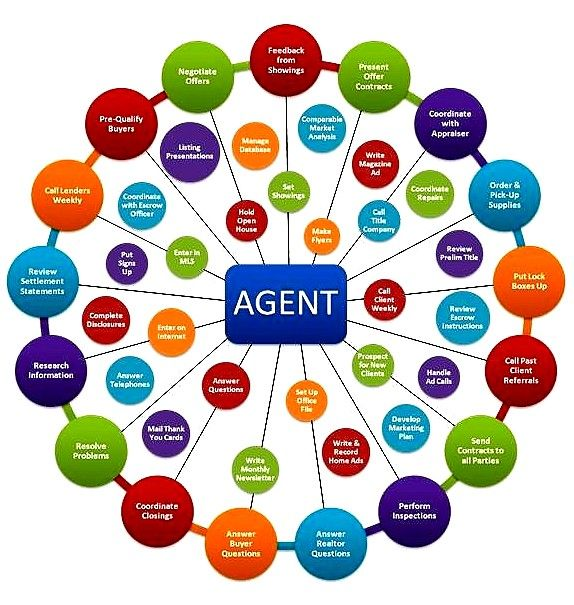Comprehending the Key Differences In Between a Real Estate Agent and Property Agents for a Successful Residential Or Commercial Property Deal
Browsing the intricacies of actual estate transactions requires an understanding of the distinct roles played by Realtors and genuine estate agents. Realtors, bound by the strict code of ethics of the National Association of Realtors, assure a level of stability that may not be ensured with all actual estate agents.
Defining Real Estate Professionals and Agents


In the realty industry, differentiating in between a Real estate agent and a realty representative is important for comprehending their unique duties and credentials. A realty representative is a specialist who has acquired a certificate to aid purchasers and vendors in real estate purchases. They offer as intermediaries in the trading of buildings, ensuring smooth interaction and negotiation in between the celebrations included. Representatives are in charge of listing residential properties, conducting market evaluations, and leading clients through the intricacies of realty deals, consisting of agreement prep work and closing treatments.
On the other hand, a Real estate agent is an accredited genuine estate representative that is also a member of the National Association of Realtors (NAR) This subscription needs adherence to a rigorous code of values and specialist standards, which are made to make certain the highest possible level of honesty and justness in all ventures. Realtors often have accessibility to a riches of sources, including specialized training and professional growth opportunities, which can boost their ability to serve customers properly. While all Real estate agents are realty agents, not all realty representatives are Realtors, making this distinction vital for customers looking for a professional with a dedication to moral practices.
Licensing and Certifications
Obtaining a real estate license is the fundamental step for individuals striving to end up being either an actual estate representative or a Realtor. Elizabeth Leanza Synergy Realty Realtor. This procedure commonly includes completing a set number of pre-licensing instructional hours, passing a state-administered test, and fulfilling any extra state-specific demands. The instructional curriculum generally covers important topics such as property concepts, residential property laws, agreements, and financing, equipping candidates with thorough industry knowledge
While all Real estate agents are real estate agents, not all genuine estate agents are Realtors. To become a Realtor, an accredited real estate agent need to join the National Association of Realtors (NAR), which calls for adherence to a stringent collection of criteria and completion of further education and learning.
Ethical Standards and Codes
Maintaining moral standards is a cornerstone of professional method in the genuine estate sector. These standards differentiate a Real estate agent from a general genuine estate representative, impacting exactly how they perform service.
On the other hand, actual estate agents must follow state licensing regulations, which give a baseline of ethical behavior but may not be as extensive or stringent as the NAR's Code of Ethics. While representatives are obliged to operate legally and relatively, the absence of an universally applied ethicality can cause irregularity in method criteria.
For consumers, comprehending these differences is important - Elizabeth Leanza Synergy Realty Realtor. A Real estate agent's dedication to a higher moral standard can supply added navigate to these guys guarantee of professionalism and responsibility. When choosing between a Real estate professional and an actual estate representative, acknowledging the value of moral codes can direct customers towards a specialist that lines up with their assumptions for honest conduct in residential property transactions

Influence On Transactions
Recognizing the moral requirements that Realtors comply with gives a foundation for analyzing their impact on realty transactions. Realtors, as members of the National Association of Realtors (NAR), are bound by a rigorous Code of Ethics, which substantially influences their communications and settlements in property transactions. This adherence to moral methods makes sure openness and honesty, cultivating depend on between all parties involved. Such trust fund is important for a successful transaction, as it can enhance communication and promote smoother arrangements.
The Real estate agent's dedication to ethical standards translates into a much more professional and trusted service, usually causing quicker and much more efficient purchases. Their responsibility to act in the best passions of their clients can result in much better end results, such as safeguarding desirable terms or determining potential issues early at the same time. Moreover, Real estate professionals are furnished with comprehensive market expertise and sources, strengthening their ability to browse intricate transactions adeptly.
In contrast, property agents that are not Realtors might not be bound by the exact same rigorous honest guidelines. This difference can affect the transaction process, potentially introducing irregularity in solution high quality and client contentment levels. Elizabeth Leanza Synergy Realty Realtor. Eventually, the influence of a Real estate agent's ethical dedication can be considerable, advertising favorable experiences and effective residential property transactions
Selecting the Right Specialist
Picking the proper real estate expert is a crucial action in making sure a successful building purchase. The selection between a Real estate professional and a property representative rests on numerous factors, including the specific demands of the deal and the level of experience required. Real estate agents are participants of the National Organization of Realtors (NAR) and abide by a strict code of values, which may be helpful for clients seeking a specialist bound by More hints increased moral standards. This affiliation can offer an added layer of count on and assurance in the handling of intricate purchases.
On the other hand, realty representatives who are not Realtors can still use high degrees of service and competence. Their abilities and experience need to be reviewed based upon their track document, regional market understanding, and client reviews. When selecting in between these professionals, consider their familiarity with the kind of residential property included and their settlement skills, which are essential for attaining beneficial terms.
Eventually, the decision ought to be informed by complete research study and personal meetings to assess compatibility and communication style. This ensures more that the selected expert aligns with the client's objectives and assumptions, leading the way for a smooth building deal.

Conclusion
In summary, identifying in between Realtors and real estate agents is vital for navigating residential property deals efficiently. Selecting a Real estate agent can considerably enhance the overall experience and self-confidence in the purchasing or offering procedure, ultimately contributing to even more successful property dealings.